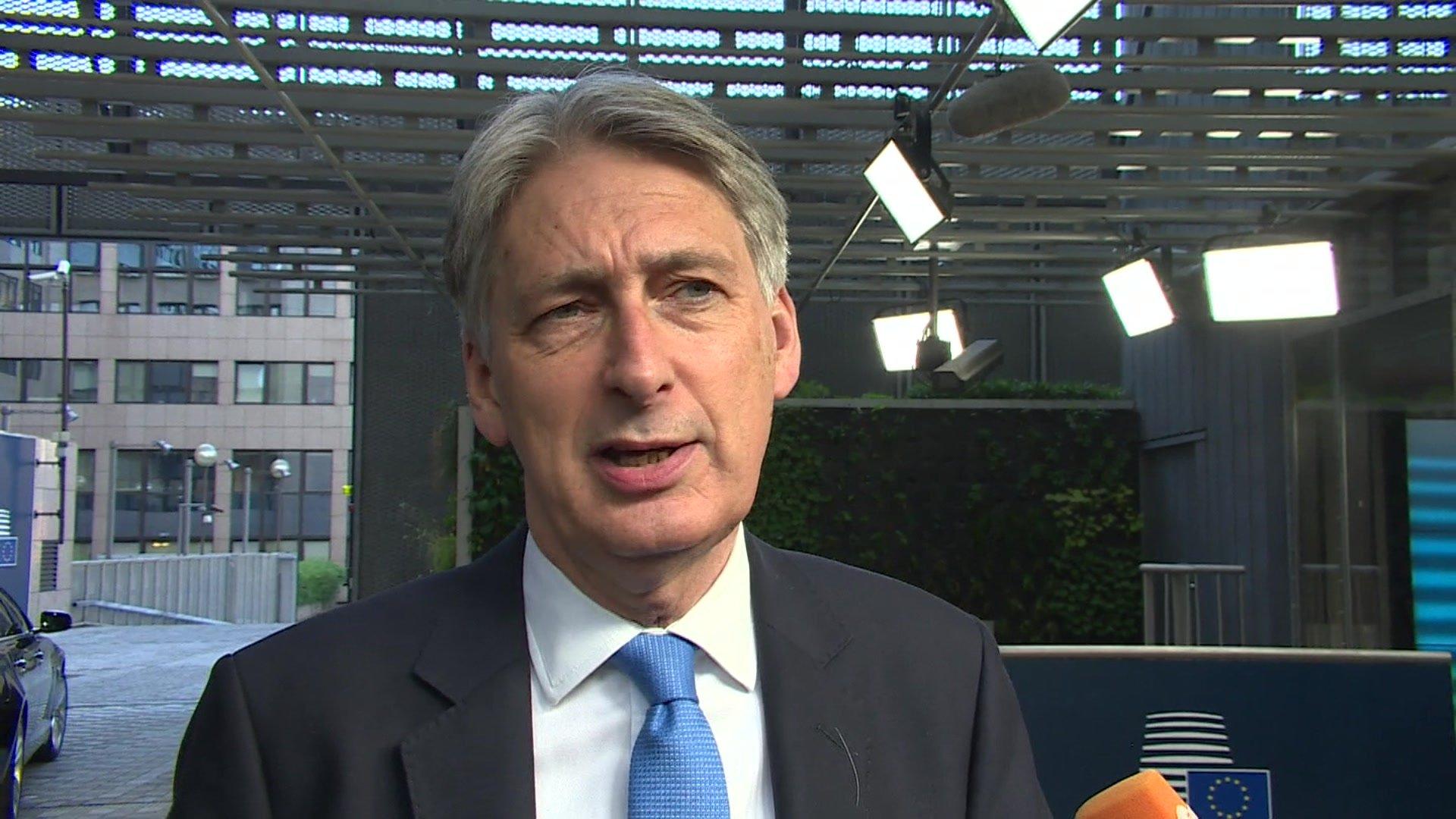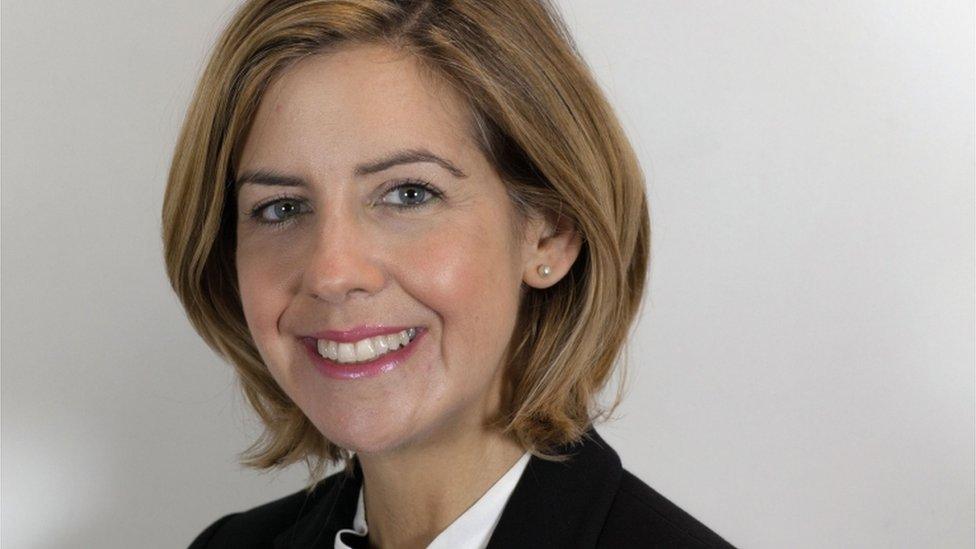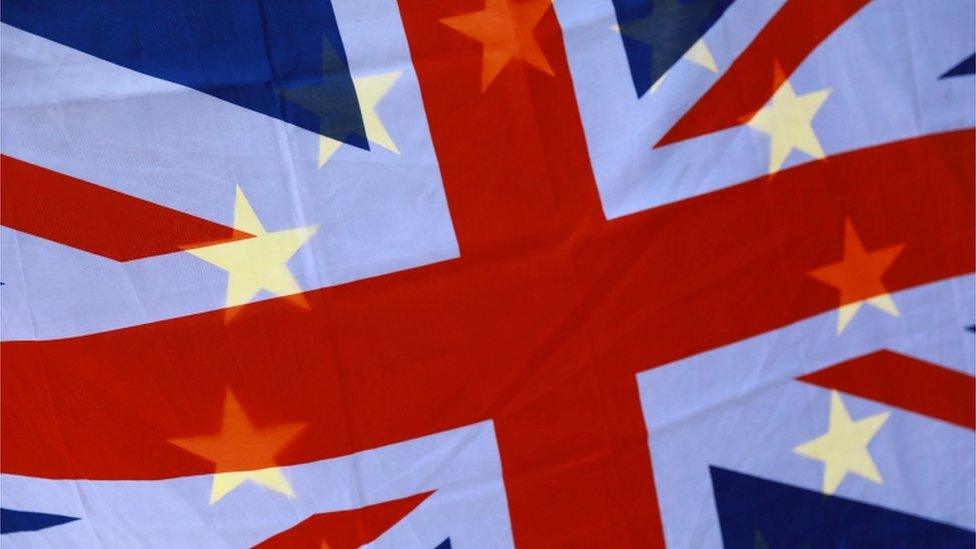Brexit: I don't wish to be PM, says Jacob Rees-Mogg
- Published
Jacob Rees-Mogg: PM 'crucial' to delivering Brexit
Leading Conservative Brexiteer Jacob Rees-Mogg has rejected press speculation he is planning to challenge Theresa May for the party leadership.
"I wouldn't challenge Theresa May. That's a ridiculous idea. The prime minister has my full support," he told the BBC's Andrew Marr show.
"I don't wish to be prime minister," he added, saying his "only ambition" was to make Brexit happen.
He urged the PM to take a tougher line on Brexit, saying errors had been made.
Mr Rees-Mogg has been highly critical of the prime minister's preferred option for customs arrangements with the EU and has questioned whether her government is still on track to deliver Brexit.
He said the UK had made "a lot of compromises" during Brexit negotiations with Brussels and "nothing has come back".
'Strong position'
But he added: "I am reassured in the last week. I think the government is still committed. But there are concerns, inevitably, about the way the negotiations are proceeding."
He said the prime minister had made a "mistake" at the start of Brexit talks by unilaterally committing the UK to an open border with the Republic of Ireland, saying it was "overwhelmingly" in Ireland's interests to have one too.
"I think, if you are going into a negotiation, you should use your strongest cards and just to tear one of them up and set hares running on other issues is, I think, an error," he said.
He said it was wrong to consider temporarily keeping the UK closely tied to the EU's customs rules as a "backstop", in an attempt to solve the Irish border issue, saying: "If you offer a backstop that is more attractive than anything that you're likely to negotiate from the other side's point of view.
"The backstop ends up becoming the frontstop."
He also questioned claims this week by the head of HM Revenue and Customs, Jon Thompson, that his own preferred customs option would cost businesses up to £20bn, saying that sounded like a "high figure".
Mr Rees-Mogg, who chairs an influential group of Brexiteer Tory MPs. the European Research Group, said remaining in some form of customs union with the EU for years after Brexit - which some have suggested will be the outcome of the talks with Brussels - would not be delivering on Brexit.
He did not believe Theresa May should walk away from Brexit negotiations, he added, but should instead threaten not to pay the £40bn "divorce bill" agreed with the EU in December.
"We should say quite clearly, if we don't get the trade deal we want, you don't get the money'. That's a very strong negotiating position," he told Andrew Marr.
He denied trying to "menace" the prime minister by telling her what to do, saying he was "very respectful" of her position, adding that she was the "most impressive and dutiful leader that this country has ever had".
There was "no menace in me at all", he added.
Russian investments
Asked if he would back the PM even if she returned from Brussels with a deal he did not like, he said: "I will back the prime minister on delivering on the promises she made in the Conservative manifesto and in her various speeches."
Mr Rees-Mogg is currently favourite at the bookmakers to be the next Conservative leader, but he rejected speculation in the media that he was plotting a challenge to Mrs May, saying his only ambition was to ensure "Brexit means Brexit" from the back benches.
According to the Mail on Sunday, external, Mr Rees-Mogg's company, Somerset Capital Management, which manages nearly £7.5bn on behalf of private investors and City institutions, "has interests in two Russian firms blacklisted by the US and others which are controlled by oligarchs in President Vladimir Putin's inner circle".
Mr Rees Mogg said he no longer ran Somerset Capital Management's investments but, he added, its clients had asked the company to invest their money in "emerging markets".
"We have a fiduciary duty to them to invest it as well as we can in businesses that we think will do well, subject to the law of the land," he told Andrew Marr.
He added: "We can not run our investments on my political opinions. I think we should be much tougher on Russia. I think we should impose a level of sanctions that America has imposed on Russia."
- Published25 May 2018

- Published25 May 2018

- Published24 May 2018
